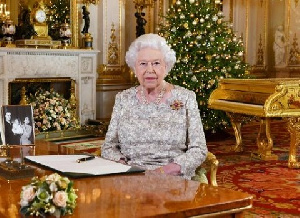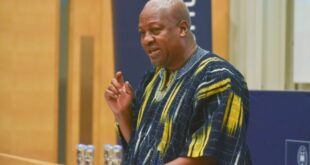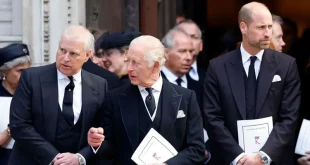Parliament will be suspended just days after MPs return to work in September – and only a few weeks before the Brexit deadline.
Boris Johnson said a Queen’s Speech would take place after the suspension, on 14 October, to outline his “very exciting agenda”.
But it means the time MPs have to pass laws to stop a no-deal Brexit on 31 October would be cut.
House of Commons Speaker John Bercow said it was a “constitutional outrage”.
The speaker, who does not traditionally comment on political announcements, continued: “However it is dressed up, it is blindingly obvious that the purpose of [suspending Parliament] now would be to stop [MPs] debating Brexit and performing its duty in shaping a course for the country.”
It would be “an offence against the democratic process and the rights of Parliamentarians as the people’s elected representatives”, he added.
Labour leader Jeremy Corbyn said: “Suspending Parliament is not acceptable, it is not on. What the prime minister is doing is a smash and grab on our democracy to force through a no deal,” he said.
He said when MPs return to the Commons next Tuesday, “the first thing we’ll do is attempt legislation to prevent what [the PM] is doing”, followed by a vote of no confidence “at some point”.
“Our prime minister needs to be held to account by Parliament,” he added.
But US President Donald Trump tweeted his support for Mr Johnson, saying it “would be very hard” for Mr Corbyn to seek a no-confidence vote against the PM, “especially in light of the fact that Boris is exactly what the UK has been looking for”.
The PM said suggestions the suspension was motivated by a desire to force through a no deal were “completely untrue”.
He said he did not want to wait until after Brexit “before getting on with our plans to take this country forward”, and insisted there would still be “ample time” for MPs to debate the UK’s departure.
“We need new legislation. We’ve got to be bringing forward new and important bills and that’s why we are going to have a Queen’s Speech,” Mr Johnson added.
Legal precedent and challenge
Shutting down Parliament – known as prorogation – happens after the prime minister advises the Queen to do it.
The decision to do it now is highly controversial because opponents say it would stop MPs being able to play their full democratic part in the Brexit process.
A number of high profile figures, including former Prime Minister John Major, have threatened to go to the courts to stop it, and a legal challenge led by the SNP’s justice spokeswoman, Joanna Cherry, is already working its way through the Scottish courts.

BBC royal correspondent Jonny Dymond said it was established precedent to prorogue Parliament before a Queen’s Speech, albeit generally more briefly, and rarely, if ever, at such a constitutionally charged time.
He said it was “Her Majesty’s Government” in name only and it was her role to take the advice of her ministers, so she would prorogue Parliament if asked to.
In this case, two members of her Privy Council – Leader of the House Jacob Rees-Mogg and Chief Whip Mark Spencer – flew to the Queen’s Balmoral residence on Wednesday to ask on behalf of Mr Johnson.
While it is not possible to mount a legal challenge to the Queen’s exercise of her personal prerogative powers, BBC legal affairs correspondent Clive Coleman said a judicial review could be launched into the advice given to her by the prime minister – to determine whether that advice was lawful.
BBC
 Home Of Ghana News Ghana News, Entertainment And More
Home Of Ghana News Ghana News, Entertainment And More





